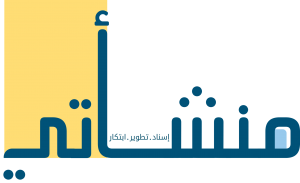


Monshati in partnership with the legal clinic of the An-Najah National University and cooperation with FLOW ACCELERATOR held a Legal Day entitled "Companies Registration and Legal Protection of Names and Trademarks" At FLOW headquarters in Ramallah on 28-8-2023. The lawyer and legal adviser of the legal clinic Prof. Mohammed Al-Atrash in the presence of a group of entrepreneurs, start-up owners, and business owners, as well as lawyers interested in developing their knowledge about corporate laws provided this training.
At the beginning, Prof. Leen Al-Khatib welcomed the attendees and the representative of the legal clinic, emphasizing the ongoing partnership and commending the activities carried out by the legal clinic as part of Monshati's project. In turn, Mr. Al-Atarsh thanked the FLOW ACCELERATOR for hosting the event and welcomed all attendees, expressing the legal clinic's readiness to collaborate and maintain ongoing partnerships in providing support and training to entrepreneurs and participants. The training session commenced with an introduction to the key legislations governing corporate provisions, specifically highlighting Law No. 42 of 2021 concerning companies.
The session aimed to explain the purpose of establishing companies, their importance, the various types of companies, and the differentiation between them to enable individuals to choose the appropriate legal structure for their projects. The discussion also covered the registration procedures of trademark and trade names, the significance of registration, and the legal protection provided to trademark owners in case of infringement. This legal training is part of Monshati's project implemented in partnership with the PMA to support MSMEs. It falls within the framework of the project to enhance the sustainability of the legal clinic at An-Najah National University, supported by the Sawasya II program and implemented through the UNDP, UN Women, and UNICEF.